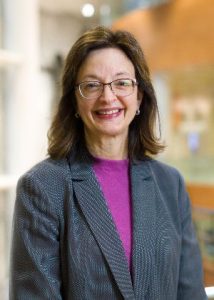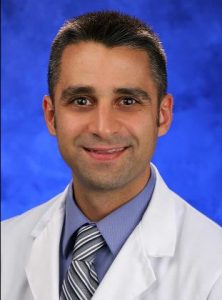Presenter Bios
 Dr. Starr is a general pediatrician and Quality Chair in the Division of Community Pediatric and Adolescent Medicine, Mayo Clinic, Rochester, Minnesota. She has more than 20 years of curriculum development and leadership experience in medical education. She earned her MD degree at St. Louis University School of Medicine, completed pediatric residency and served in the United States Navy before coming to Mayo Clinic in 2000. She previously served as Vice-Chair for Education in the Department Pediatric and Adolescent Medicine, Assistant Medical Director of the Quality Academy, and as the pediatric pre-clinical course director and Chair, Student Promotions Committee, at the medical school. She is currently responsible for leading the school’s longitudinal Science of Health Care Delivery course on the Minnesota campus.
Dr. Starr is a general pediatrician and Quality Chair in the Division of Community Pediatric and Adolescent Medicine, Mayo Clinic, Rochester, Minnesota. She has more than 20 years of curriculum development and leadership experience in medical education. She earned her MD degree at St. Louis University School of Medicine, completed pediatric residency and served in the United States Navy before coming to Mayo Clinic in 2000. She previously served as Vice-Chair for Education in the Department Pediatric and Adolescent Medicine, Assistant Medical Director of the Quality Academy, and as the pediatric pre-clinical course director and Chair, Student Promotions Committee, at the medical school. She is currently responsible for leading the school’s longitudinal Science of Health Care Delivery course on the Minnesota campus.
Nationally, Dr. Starr has served on the Council on Medical Student Education in Pediatrics Executive Committee. She is a board member of the Kern National Network (KNN) for Caring and Character in Medicine and co-PI for the school’s KNN grant. She has been active in the American Medical Association’s Accelerating Change in Medical Education Health Systems Science Interest Group since its inception. Her scholarship has primarily focused on Health Systems Science medical education (most specifically Health Systems Science education), quality improvement education and pediatric medical education.
 Dr. Jed Gonzalo graduated from the University of Scranton in 2002 (B.S. biology/philosophy), receiving the Frank O’Hara Gold Medal Award (awarded to the student with the highest GPA). Jed received his MD degree from the Penn State College of Medicine in 2006, being inducted into AOA Honor Society and chosen by his classmates as “Classmate you would most want as your physician.” He completed his internal medicine residency and chief residency at the Beth Israel Deaconess in Boston, where he was Instructor at the Harvard Medical School, and awarded the Lowell McGee Award, which is given to the resident who most demonstrates the “fundamental importance of teaching and to the spirit and substance of being a physician.” Following residency, Jed completed a fellowship at the University of Pittsburgh in General Internal Medicine/Medical Education, earning a Master of Science in Medical Education/Clinical Research.
Dr. Jed Gonzalo graduated from the University of Scranton in 2002 (B.S. biology/philosophy), receiving the Frank O’Hara Gold Medal Award (awarded to the student with the highest GPA). Jed received his MD degree from the Penn State College of Medicine in 2006, being inducted into AOA Honor Society and chosen by his classmates as “Classmate you would most want as your physician.” He completed his internal medicine residency and chief residency at the Beth Israel Deaconess in Boston, where he was Instructor at the Harvard Medical School, and awarded the Lowell McGee Award, which is given to the resident who most demonstrates the “fundamental importance of teaching and to the spirit and substance of being a physician.” Following residency, Jed completed a fellowship at the University of Pittsburgh in General Internal Medicine/Medical Education, earning a Master of Science in Medical Education/Clinical Research.
As Associate Dean for Health Systems Education, Jed’s work focuses on: 1) exploring the relationship between education and health systems, and, 2) leading the field of Health Systems Science. He has implemented 15+ programs related to health systems education, which have garnered national recognition from the Washington Post, Wall Street Journal, US News and World Report, NPR radio, and AMA newswire. Jed has a well-established track record for scholarship, and in particular, multi-institutional collaborations. He is lead author/editor of several textbooks, and has received funding from the AMA, AAMC, HRSA, CTSI, and Josiah Macy Foundation (Faculty Scholar Award). He mentors 25+ students, residents, and faculty per year.
Related
 Dr. Starr is a general pediatrician and Quality Chair in the Division of Community Pediatric and Adolescent Medicine, Mayo Clinic, Rochester, Minnesota. She has more than 20 years of curriculum development and leadership experience in medical education. She earned her MD degree at St. Louis University School of Medicine, completed pediatric residency and served in the United States Navy before coming to Mayo Clinic in 2000. She previously served as Vice-Chair for Education in the Department Pediatric and Adolescent Medicine, Assistant Medical Director of the Quality Academy, and as the pediatric pre-clinical course director and Chair, Student Promotions Committee, at the medical school. She is currently responsible for leading the school’s longitudinal Science of Health Care Delivery course on the Minnesota campus.
Dr. Starr is a general pediatrician and Quality Chair in the Division of Community Pediatric and Adolescent Medicine, Mayo Clinic, Rochester, Minnesota. She has more than 20 years of curriculum development and leadership experience in medical education. She earned her MD degree at St. Louis University School of Medicine, completed pediatric residency and served in the United States Navy before coming to Mayo Clinic in 2000. She previously served as Vice-Chair for Education in the Department Pediatric and Adolescent Medicine, Assistant Medical Director of the Quality Academy, and as the pediatric pre-clinical course director and Chair, Student Promotions Committee, at the medical school. She is currently responsible for leading the school’s longitudinal Science of Health Care Delivery course on the Minnesota campus. Dr. Jed Gonzalo graduated from the University of Scranton in 2002 (B.S. biology/philosophy), receiving the Frank O’Hara Gold Medal Award (awarded to the student with the highest GPA). Jed received his MD degree from the Penn State College of Medicine in 2006, being inducted into AOA Honor Society and chosen by his classmates as “Classmate you would most want as your physician.” He completed his internal medicine residency and chief residency at the Beth Israel Deaconess in Boston, where he was Instructor at the Harvard Medical School, and awarded the Lowell McGee Award, which is given to the resident who most demonstrates the “fundamental importance of teaching and to the spirit and substance of being a physician.” Following residency, Jed completed a fellowship at the University of Pittsburgh in General Internal Medicine/Medical Education, earning a Master of Science in Medical Education/Clinical Research.
Dr. Jed Gonzalo graduated from the University of Scranton in 2002 (B.S. biology/philosophy), receiving the Frank O’Hara Gold Medal Award (awarded to the student with the highest GPA). Jed received his MD degree from the Penn State College of Medicine in 2006, being inducted into AOA Honor Society and chosen by his classmates as “Classmate you would most want as your physician.” He completed his internal medicine residency and chief residency at the Beth Israel Deaconess in Boston, where he was Instructor at the Harvard Medical School, and awarded the Lowell McGee Award, which is given to the resident who most demonstrates the “fundamental importance of teaching and to the spirit and substance of being a physician.” Following residency, Jed completed a fellowship at the University of Pittsburgh in General Internal Medicine/Medical Education, earning a Master of Science in Medical Education/Clinical Research.